TeamUp International
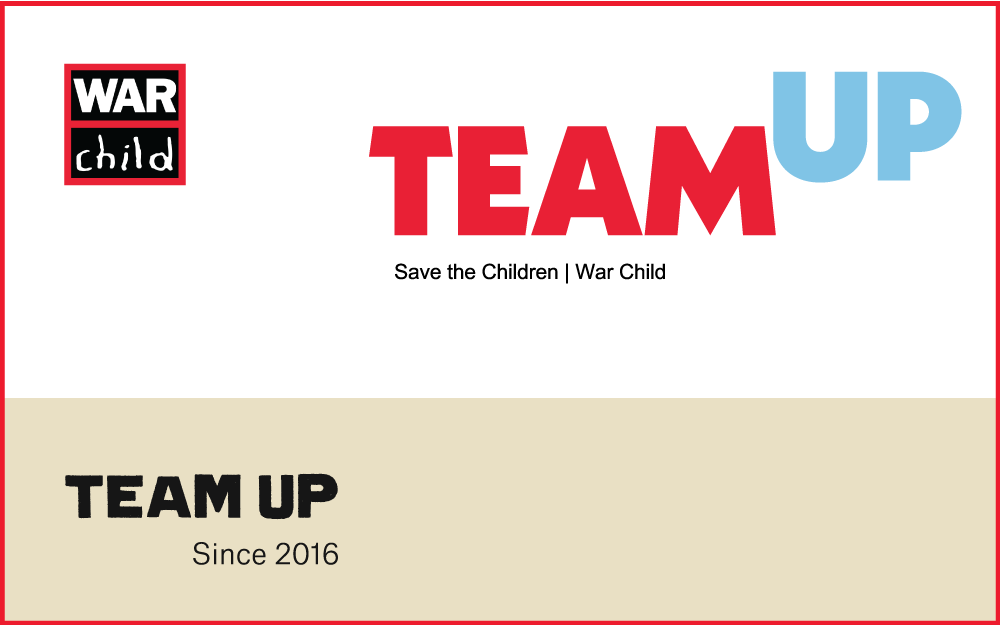
-
Child participants: 62,180*
-
TeamUp Facilitators: 1,496
-
Countries: 16
-
Partner organisations: Nine
We live in a world where two in every five people fleeing violence and persecution are children. That’s millions of young people confronted daily by uncertainty, fear and distress. Children are extremely resilient, but they need the chance to process their experiences. Play and movement-based activities - such as sports and dance - can play a big role.
That’s why War Child - together with Save the Children and UNICEF Netherlands - is scaling up our psychosocial support intervention, TeamUp. And in 2021 it was full steam ahead...
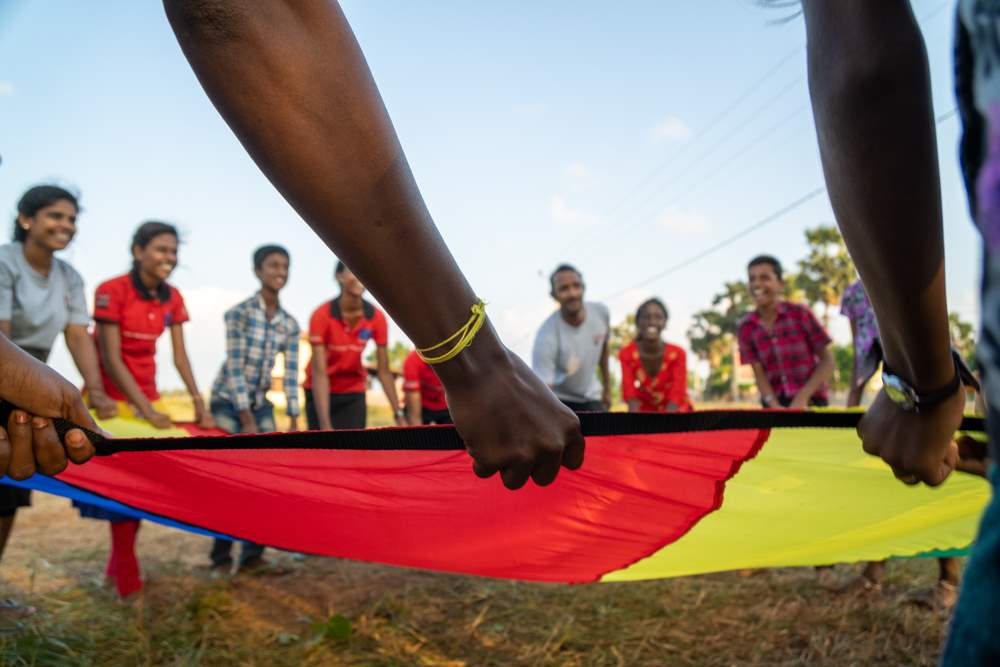
Broadening Our Reach
Noticing not only that the number of refugee children around the world is growing, but also the number of children living in active war zones , we kicked off the year by putting our new scaling strategy firmly into action. This saw us make a conscious effort to widen our support to all children affected by conflict internationally.
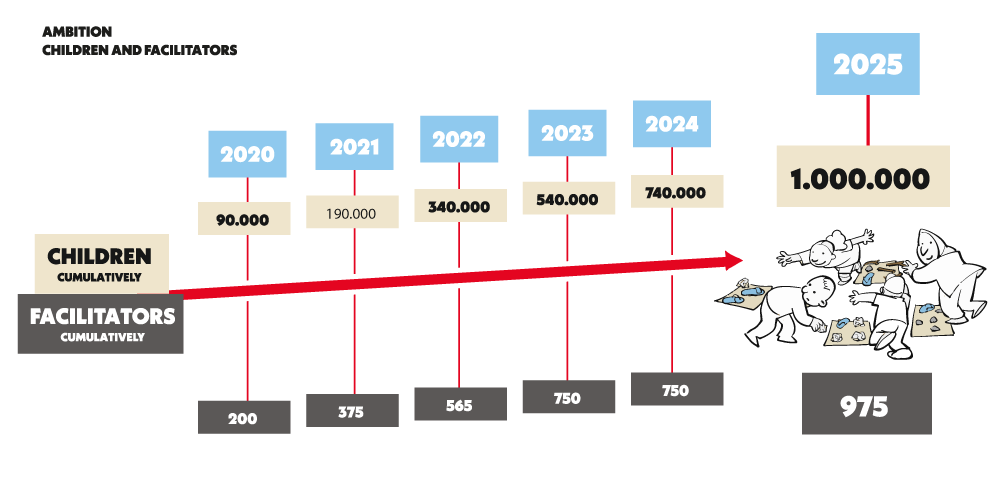
The TeamUp Movement
By the last quarter of the year, we had commenced activities in six new countries: South Sudan, Ethiopia, Greece, Italy, Sweden and Cyprus. We also expanded our reach in the 10 countries where we are already active.
This required both ‘horizontal’ and ‘vertical’ scaling: not only expanding to new countries with the support of existing partners but also bringing new organisations into the fold.
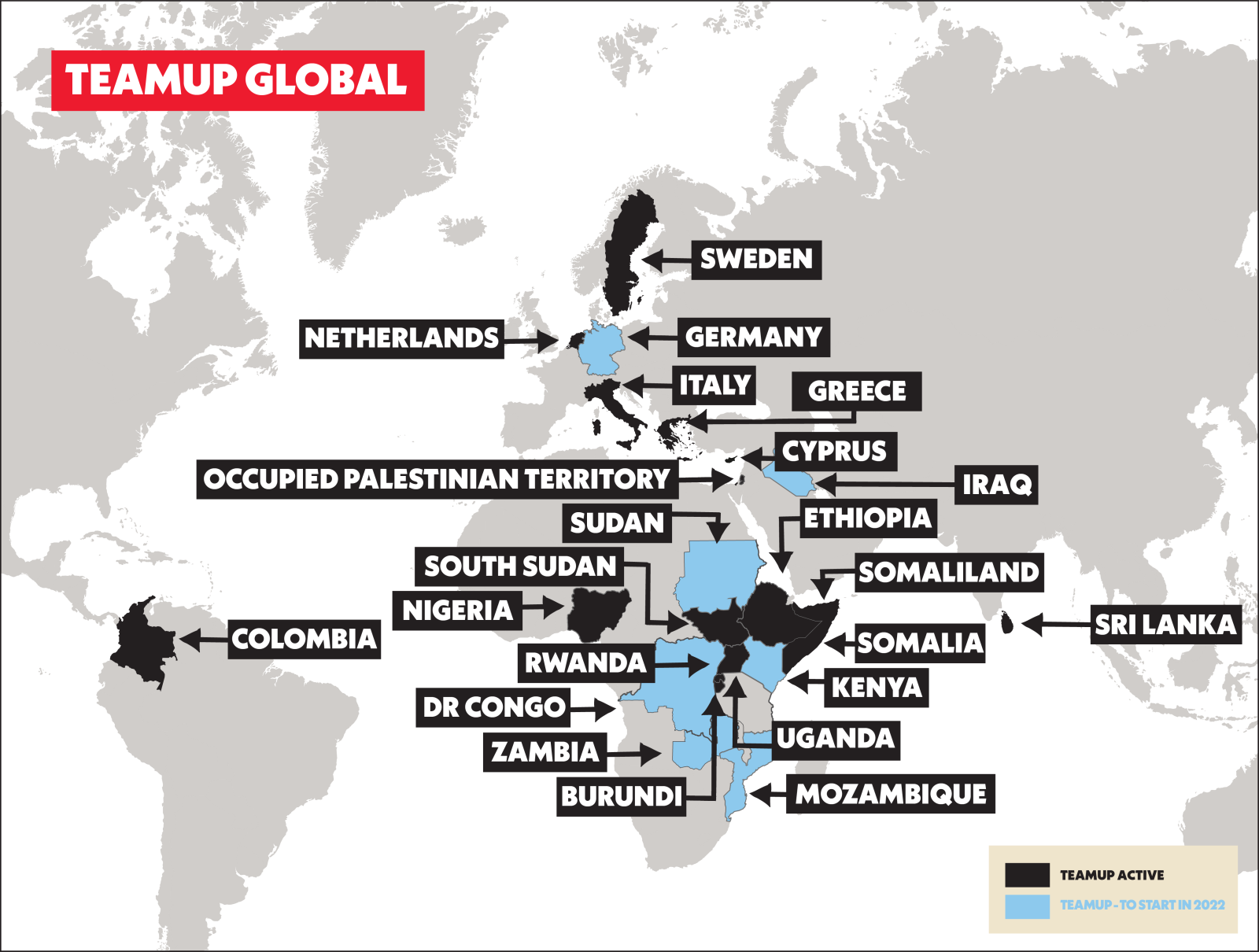
In addition to key implementing partners SOS Children’s Villages and Save the Children, we also enlisted the support of Plan International, Help a Child and ZOA Uganda to roll out the method.
These new partnerships were made possible by integrating TeamUp in several strategic consortia including Joining Forces for Africa, the Dutch Relief Alliance and Enhancing Psychosocial Support for Unaccompanied Minors (EPSUM) - the latter of which resulted in a formal partnership with SOS Children Villages’ Mental Health and Psychosocial Support Knowledge Hub.
Ensuring Quality
Over the course of the year, some 1,496 volunteers were trained to deliver this flagship psychosocial support intervention, becoming fully certified TeamUp Facilitators. With personal and professional benefits to becoming a facilitator, these individuals are considered as adult participants in our programmes.
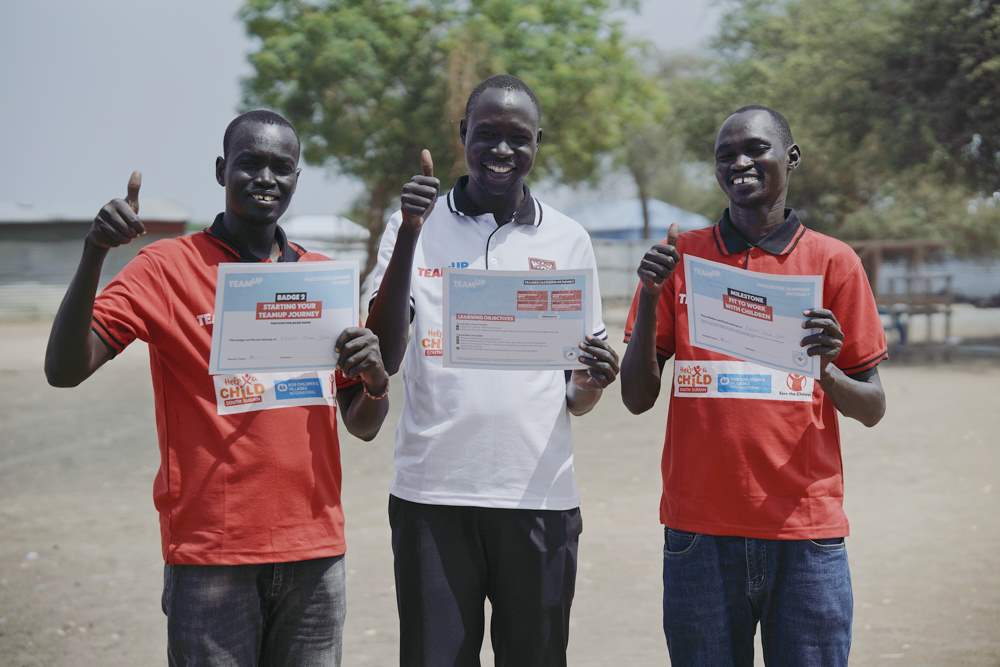
To ensure quality in this process, our TeamUp Global team took the lead in piloting a certification system through professional development initiative HPass. The system is already being used by our team of facilitators, trainers and master trainers to improve their professional skillsets.
Building Evidence
Developing an evidence-based intervention doesn’t happen overnight. It takes years and years of testing and research to prove our method works and improve it on this basis. TeamUp was proud to make some significant steps in this regard.
A quasi-experimental study among 549 children in four schools in Uganda’s Bidibidi Refugee Settlement provided concrete data in support of our approach. The year also saw TeamUp featured in two case studies of Innocenti, UNICEF’s dedicated research institute. One highlighted the adaptability of the method in different contexts while the other demonstrated our TeamUp Theory of Change in action in the Netherlands.
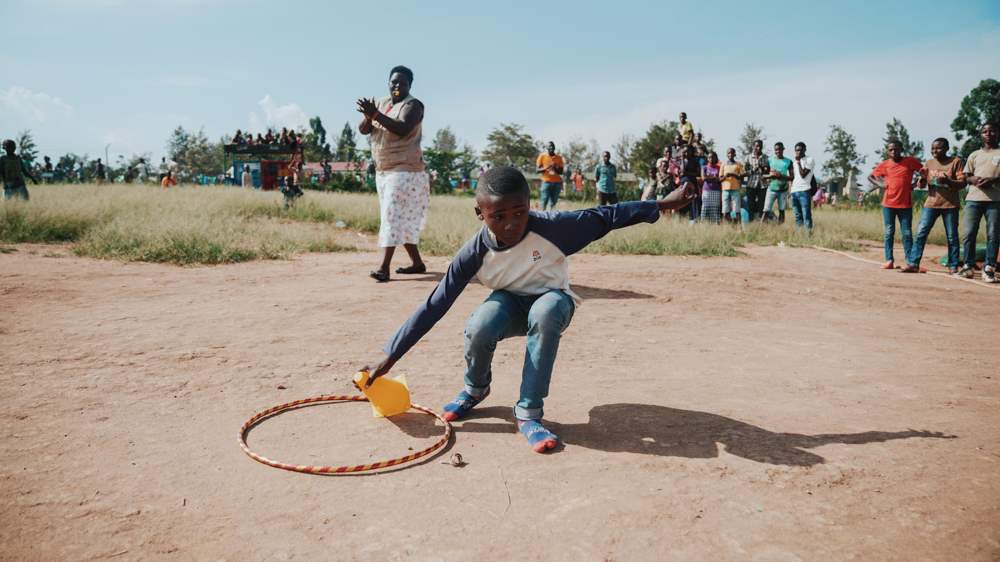
Thanks to these research projects we can confidently say that the TeamUp intervention is having a measurable positive impact on children’s wellbeing, raising the bar for what it means to be a truly evidence-based method.
- * All 62,180 child participants were reached through our country offices and partner organisations
